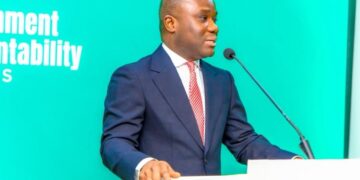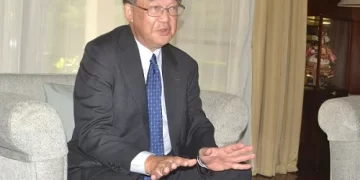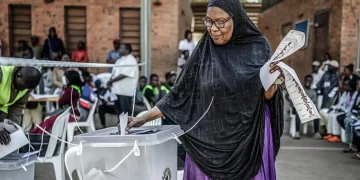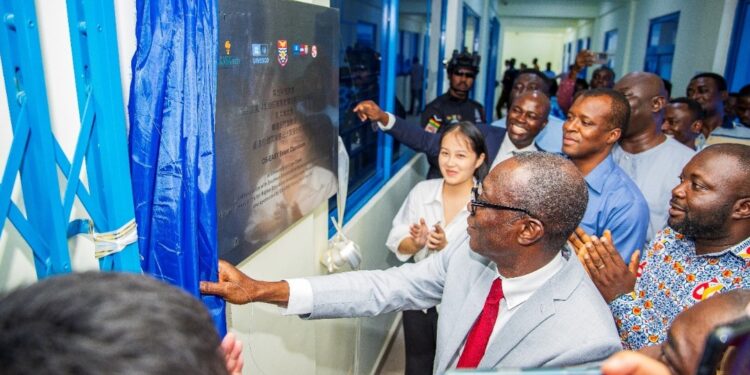The launch of the OS-Easy Smart Classroom and IIOE Ghana National Centre at the University of Cape Coast marked a bold step toward digital education within the university and the west African sub-region.
The event, which spotlighted digital transformation in learning, was co-organized by University of Cape Coast (UCC), the Institute for Educational Planning and Administration (IEPA) under the auspices of UNESCO, the Southern University of Science and Technology, UNESCO’s International Centre for Higher Education Innovation (UNESCO-ICHEI), and OS-Easy Group Holding Limited.
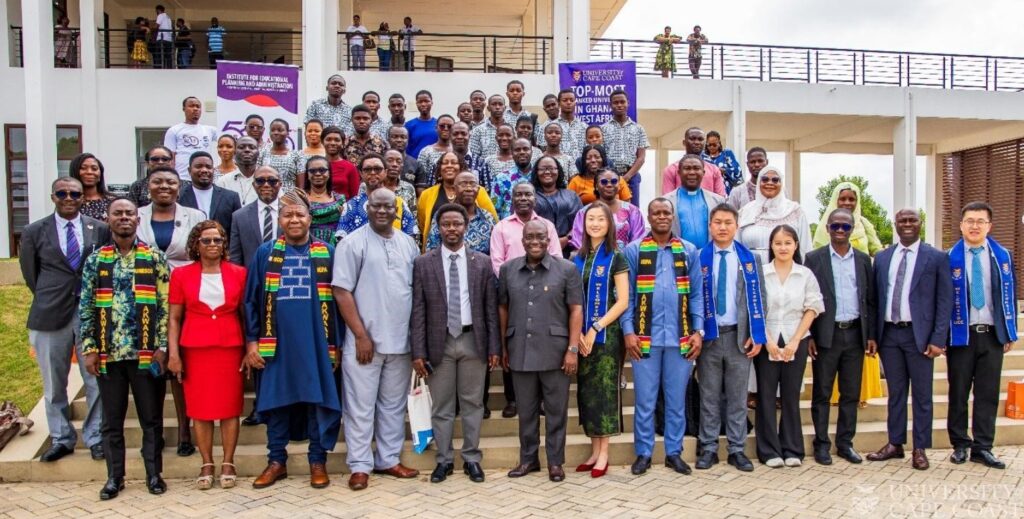
In his keynote address, Dr. Stephen Moore, a strong advocate for digital learning, stressed that digital tools are no longer a luxury but a necessity for educating Africa’s growing youth population.
He emphasized that smart classrooms and digital tools are essential to shaping the future of learning in Ghana.
“The best way to educate the future of our country is by adopting digital tools,” Dr. Moore stated. “This is the only way to accelerate knowledge sharing from experts.”
He noted that platforms such as Coursera and edX have made it possible for students and researchers to access global knowledge with just a mobile phone and internet connection.
Citing United Nations projections that Africa’s population could reach 830 million by 2050, Dr. Moore warned that traditional educational systems are already strained and cannot keep up without meaningful innovation.
“The COVID-19 pandemic revealed just how vulnerable conventional higher education is. Smart classrooms are more than just technology they are a commitment to equity, inclusion, and innovation for the people of Ghana,” he said.
Dr. Moore also highlighted how smart classrooms can connect students with world-class instructors, allowing real-time interaction through video lectures, questions, and feedback regardless of their location.
He emphasized the transformative power of digital education for inclusive and personalized learning.
“Digital platforms offer physically challenged students and those in remote areas access to quality resources that overcome the limitations of traditional infrastructure,” he explained.
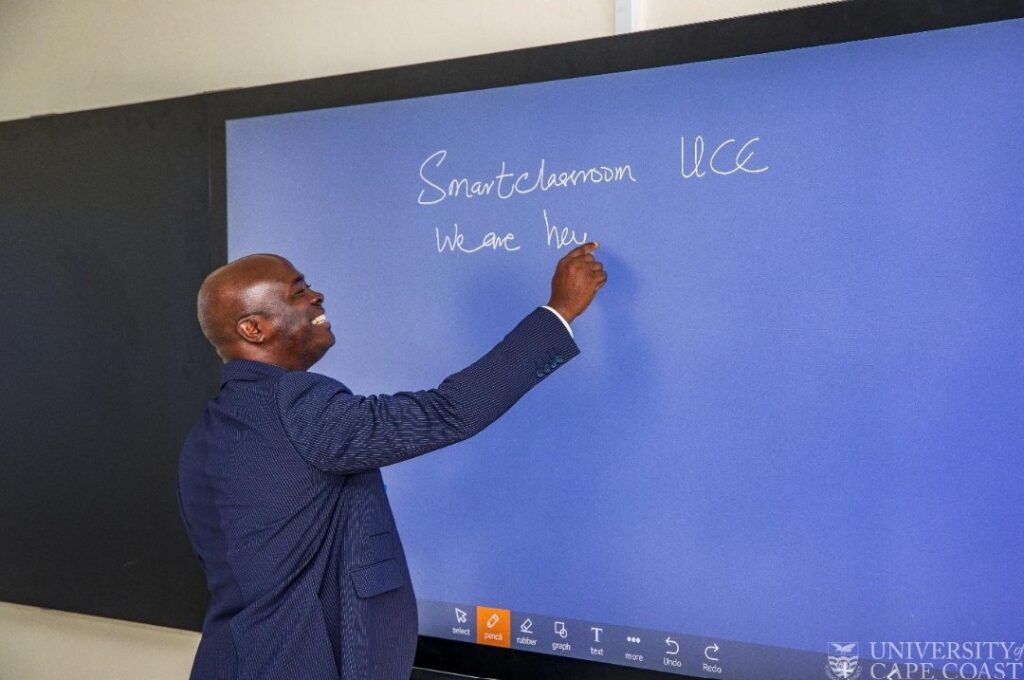
Professor Michael Boakye-Yiadom, Director-General of the UNESCO Category II Centre of Excellence, IEPA-UCC said the smart classroom partnership shows a shared commitment to innovation, regional access, and local ownership in virtual education.
Prof. Boakye-Yiadom, credited a two-year collaboration with UNESCO’s International Centre for Higher Education Innovation (UNESCO-ICHEI), rooted in a shared commitment to educational innovation and leadership, for making the smart classroom a reality.
He noted that IEPA has a mandate to cover countries like Gambia, Sierra Leone, Liberia, Senegal, and Nigeria and virtual platforms like this will allow them to reach them.”
Prof. Boakye-Yiadom revealed that the new platform will not only host international content but also provide space for locally developed courses.
“Some of our MPhil and PhD programmes must go online. Many of our students are working professionals who can’t relocate for months at a time. This platform gives us the flexibility we need. ”
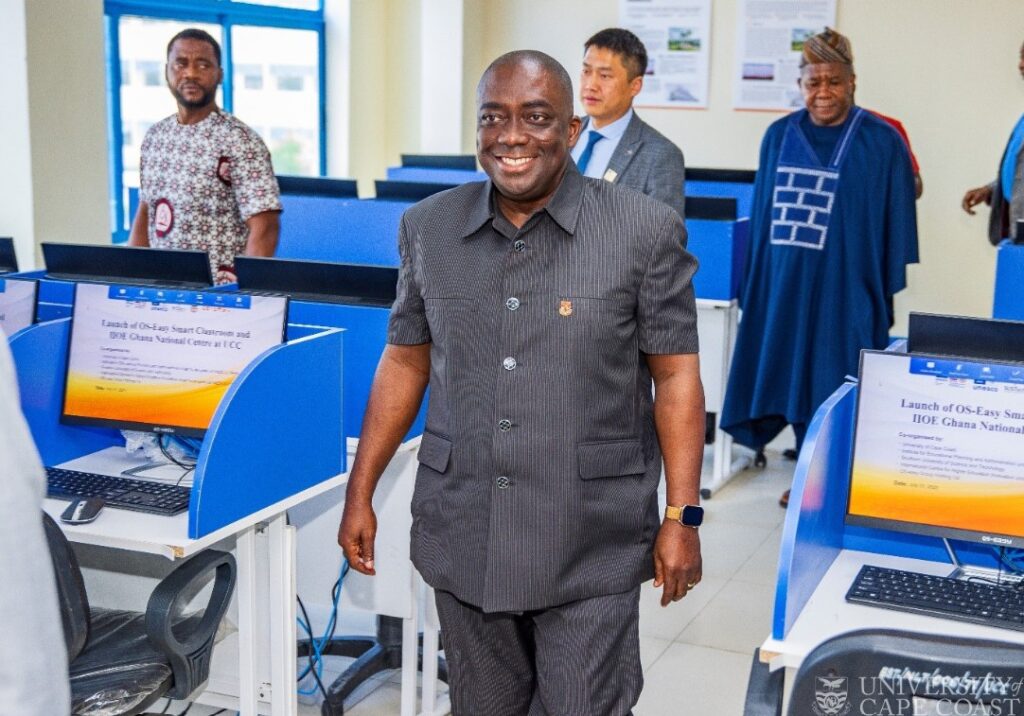
He underscored the importance of local ownership, stating that the University of Cape Coast will oversee the facility’s operations.
He also urged the various colleges within UCC to take advantage of the smart classroom and explore ways to integrate virtual learning into their existing programmes.
The Vice-Chancellor of UCC, Prof. Johnson Nyarko Boampong, officially commissioned the facility and praised the international collaboration that made the project possible adding that “it is the result of years of internationalization efforts.”
In an interview with ATLFM News, the Vice-Chancellor credited the Director-General of IEPA for facilitating the partnership with China, which brought in all the necessary computing equipment.
“We’ve spent about 85,000 dollars on the computers,” he revealed. “The Chinese team also sent experts to install the machines, and now the facility is ready for academic work.”
Prof. Boampong highlighted the long-term benefits of international collaboration, which include faculty and student exchanges as well as increased opportunities for joint research funding.
“Internationalization takes time to yield results,” he said. “But through it, we’ve secured critical support that allows the university to achieve its academic and research goals.”
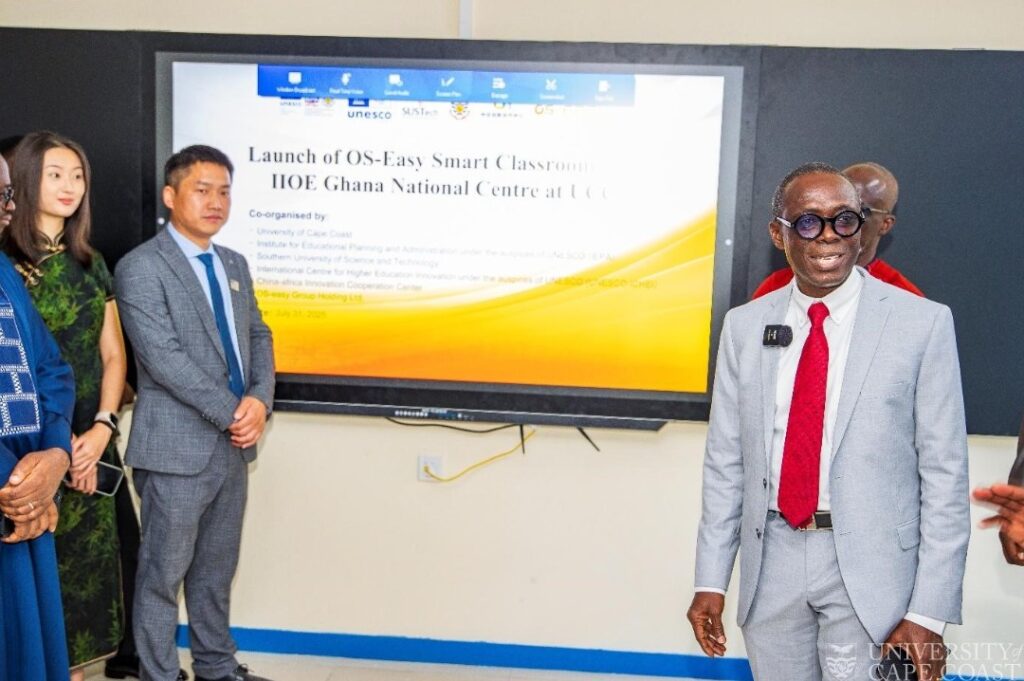
The launch of the OS-Easy Smart Classroom and IIOE Ghana National Centre marks a significant milestone in Ghana’s journey toward a digitally inclusive and globally connected education system.
With stakeholders committed to equity, innovation, and regional access, the future of learning in Ghana is being redefined one smart classroom at a time.
READ ALSO: Ghana’s Anti-Trafficking Laws Need Urgent Review – Rights Group
Source: Eric Sekyi/ATLFMNEWS



